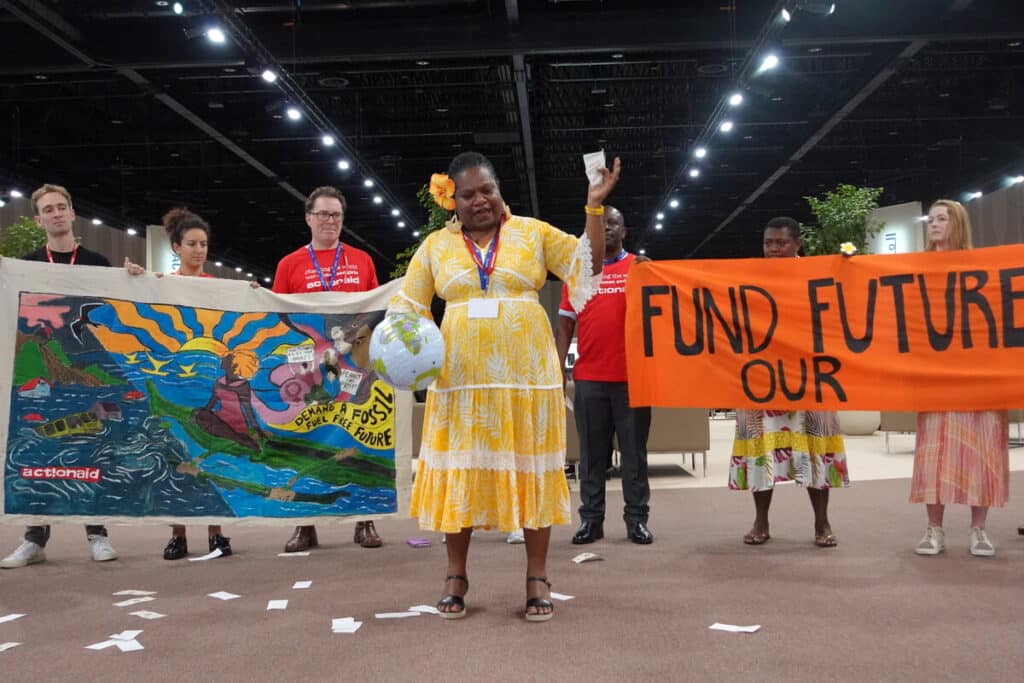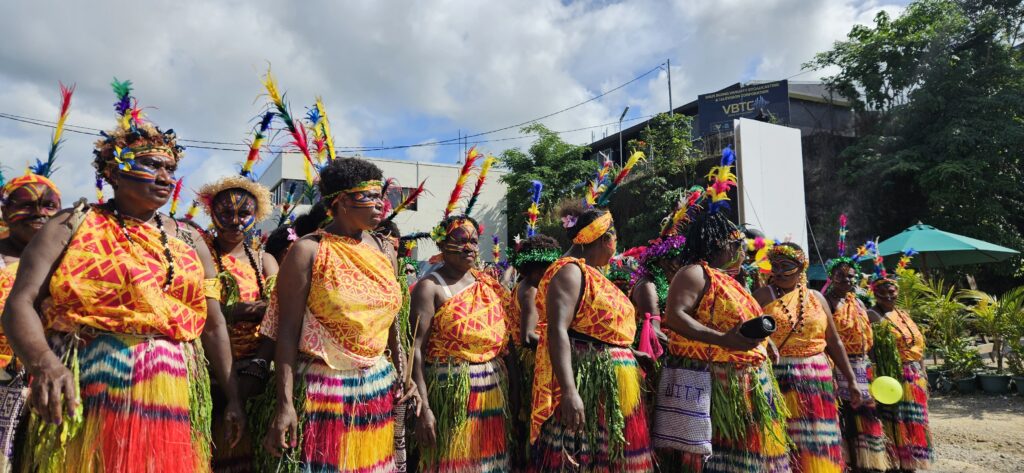In Vanuatu, the effects of climate change are already hitting communities hard, but a network of more than 9000 ni-Vanuatu women across five islands has established a response to disasters that leaves no one behind.
The tiny Pacific country of less than half a million people is experiencing more intense and frequent weather events as a result of climate change, especially cyclones, including the devastating impact of the twin cyclones Judy and Kevin that hit within 48 hours of each other in March 2023.
The frequency of disasters has seen women demanding to get heard in a country that has traditionally and culturally held barriers in the way of women’s participation, where there is just one woman in parliament.
The launch of Women I Tok Tok Tugeta collective by ActionAid Australian in 2015 following the devastating category-5 Cyclone Pam, has gained strength and momentum in the years since, growing to a powerful collective of 9000.
As of Monday this week, the collective has evolved into a formal self-governing national network, dedicated to supporting women’s leadership in preparing their communities for climate disasters.
Translating to “Women Talk Together”, the locally-led collective connects women from rural and coastal communities across five islands to meet regularly to learn about their rights, develop practical strategies for responding to climate disasters in their communities, and support women with disabilities to lead and participate.
Importantly, the network is a powerful communication source. It aims to ensure that when a disaster strikes or is imminent, women are informed and can evacuate and “no one gets left behind”. It’s already achieved significant success, with one person killed as the twin cyclones hit in 2023.
In the years since the network’s initial launch, I’ve been lucky to have interviewed Flora Vano a number of times, a passionate advocate for immediate global action on climate change and spokesperson for ActionAid Vanuatu, who shares the powerful impact of the network.
As Vano says, women are not part of decision-making in Vanuatu. Women are not even allowed to be part of the solution.
“That means that when a disaster strikes, women get left behind, and their voices are not heard,” she says.
“Through Women I Tok Tok Tugeta, we teach women about their rights and how to speak up.”
Vano has also seen how individuals transform through the network, knowing the strength of the collective behind them.
“When I first met these women, no one dared make a comment. Now you can’t stop these women in a meeting room – they are on fire!
“They [women] were not being respected before, but now they have gained respect from the elders and the community leaders,” she said.
Vano has also opened numerous doors herself and put herself in spaces that don’t necessarily want to hear from women at the frontline of the climate crisis. She was at COP28 in 2023, where she shared her excitement at being among the many climate activists and her frustrations that they continue to face the same battles against the fossil fuel industry.
On Monday, ActionAid marked the official launch of the Federation, with Vanutu First Lady Rima Vurbaravu and Australia High Commissioner H.E Max Willis present, along with British High Commissioner H.E Nicolette Brent. ActionAid International Secretary-General Arthur Larok and team members from the Vanuatu and Australia offices were also present.
As Michele Higelin, Executive Director of ActionAid Australia, says, we’re currently seeing gender equality globally taking a large setback, with climate change being a significant contributor.

On Finance Day at COP28 members of the ActionAid delegation take part in an action demonstrating how banks are pouring finance into fossil fuel production.
Climate change is a threat multiplier for women and girls globally. While stronger action on reducing emissions must continue, so too must the community preparation required for dealing with climate disasters.
“When women lead in disaster response, the whole community is better off. Women drive more inclusive response and ensure the whole needs of the community are met, including children and people with disabilities,” Higelin says.


